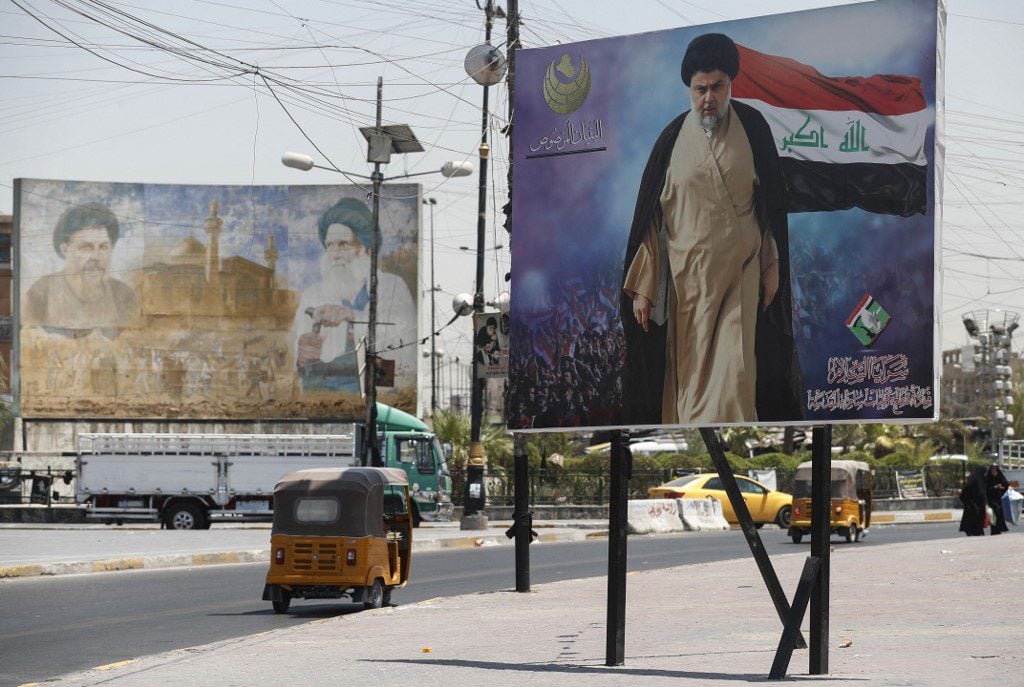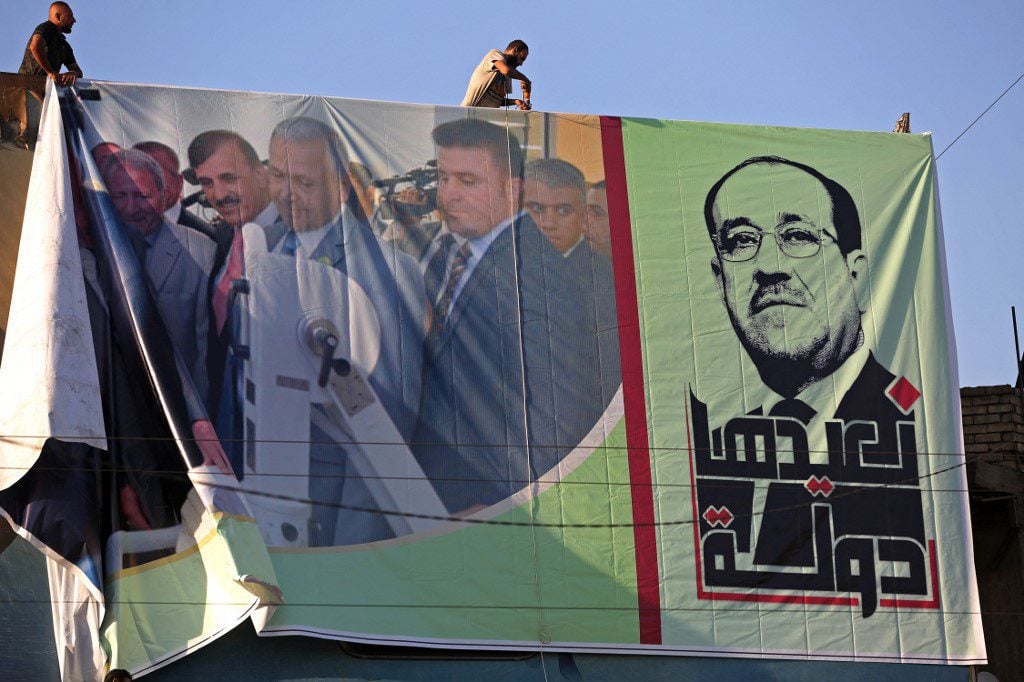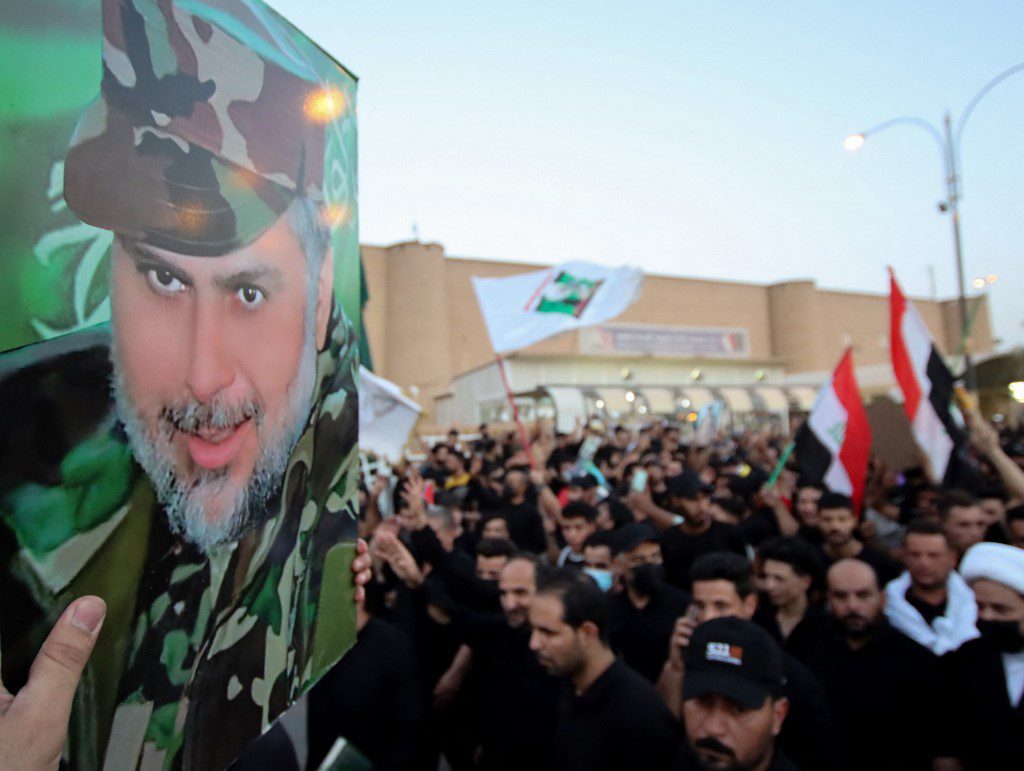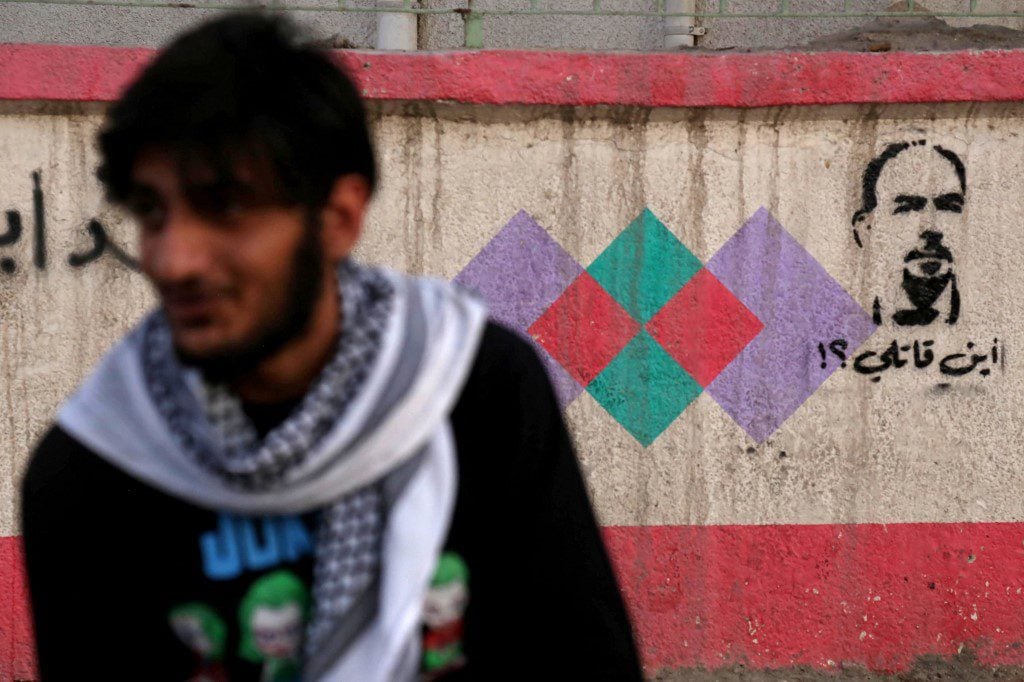
Hussein Alzoubi
Early parliamentary elections will take place in Iraq on 10 October 2021. According to Hudayfa al-Mashhadani, a researcher in Iraqi political affairs, these elections will be the worst, not only for the political, economic and societal status quo but also for the possible consequences. These consequences might be more dangerous than those resulting from the tampering with the 2010 elections, which would have put Iraq on the path of salvation had it not been for the foreign interference using internal tools.
Fortunately, as a journalist, I participated in covering those elections in Damascus. At the time, Syria was home to about 1.5 million Iraqis, according to unofficial statistics. In 2010, people residing outside Iraq were allowed to vote, unlike this time. Nowadays, millions of Iraqis living outside Iraq cannot vote.
The turnout was heavy, and the atmosphere of the competition was present. The Iraqiya list, led by the secular Shiite Ayad Allawi, was ahead, especially in the electoral centres in Jaramana and Qudsaya, where secular Sunnis, Shiites, and Iraqi Christians used to live. However, the Sayyida Zainab area represented a population gathering supporting Shiite religious parties. People residing there voted for the al-Daawa Party and its political face Nouri al-Maliki.
Why did that session have grave consequences?
Because Iraq, as al-Mashhadani told Fanack, had some societal balance between the Arab Shiites, the Arab Sunnis, and the Kurds. At that time, Iraq was a national state with self-rule in the Kurdistan region. Wars against the Islamic State have not yet taken place and have not yet crushed cities with a Sunni majority. Most residents had neither to flee or be subjected to forced displacement and demographic change, especially in Diyala Governorate. That would not have happened if the Iraqiya list had risen to power. It would have been able, as al-Mashhadani states, to put Iraq on the right track because it has a secular orientation away from the state of sectarian polarization. Moreover, it included influential Shiite and Sunni figures and other components such as Ayad Allawi, former Iraqi Vice President Tariq al-Hashemi, Rafi al-Issawi, Iskandar Watut, Alia Nassif, Qaim al-Shammari, Jamal Battikh, Rasim Al-Awadi and others.
More importantly, Iraq had just come out of the civil war, which was sparked by the bombing of Al-Askari Shrine in Samarra, as the country experienced the bitterness of internal fighting and sectarian entrenchment. That matter prompted many Iraqis to try searching for a list that better represents the spectrum of the Iraqi people, with proposals far from the crude sectarian situation. Iraqis wanted to reject the laws imposed by the post-US occupation era. These laws were politicized and implemented in revenge. The list includes the de-Baathification law, which turned into a ready-made accusation that could be attached to any opponent. Also, it rejected the state of the components, calling for the state of citizenship.
The Iraqi voters managed to put the Iraqiya list ahead in the elections. However, the people’s will was weaker than the international consensus. In this context, the former US National Security Adviser Ben Rhodes says in his book “The World as It Is”: “Biden is the person who hijacked the electoral process from Ayad Allawi and gifted it to Maliki under Iranian pressure. That happened in Muscat in Oman. Ayad Allawi won the 2010 elections, and that upset the Iranians a lot. So, the Iranians threatened to stop the negotiations on the nuclear file if Allawi became the prime minister in Iraq. Iran asked Obama, frankly and clearly, to facilitate and support al-Maliki to reach power”. Ayad Allawi says on this matter: “Iran not only rejected my presence as the head of the government but also rejected the presence of any member of the Iraqiya list.”
About the same context, al-Mashhadani says: “Most of the Iraqiya members were pursued. Some of them had to escape from the Article (Terrorism 4), including Tariq al-Hashemi. Others had to deal with corruption charges. Out of intimidation and temptation, some members had no option except moving to the State of Law Coalition led by al-Maliki, who belonged to the Shiite Islamic al-Daawa Party since 1970.”
The Iranian will and the American approval were constitutionally produced, according to Al-Mashhadani, by changing a rule approved by the same constitution on which the elections were held, known as the Bremer Constitution after the American civil ruler in Iraq, Paul Bremer. The rule says that the list that gets the highest percentage of votes is the one that forms the government. Instead, “largest mass” was invoked. Nouri al-Maliki, known as Iran’s strongman, stayed as prime minister until 2014.
Though absent from the scene, Allawi must play a role behind the scenes because of his bourgeois origin. At least, the Iraqi researcher Hassan Al-Alawi thinks so. According to Alawi, Allawi shows his reluctance to participate in the elections while allowing members of his national list to participate. Among these is his daughter Sarah, whose postures spread out in the streets of Baghdad next to his.
Catastrophic Corruption

The era of al-Maliki’s rule witnessed the highest rates of corruption, according to international reports. Two of these reports comes from prominent sources like Transparency International and the US Inspector General for Iraq Reconstruction, Stuart Bowen. In his report known as (Learning from Iraq), Bowen refers to $800 million being transferred illegally every week outside Iraq. Bowen had investigated corruption operations spanning nearly ten years that involved US money. In his report, Bowen quotes a former Iraqi minister saying that “corruption today is worse than ever” and that it has returned to create a “disaster”.
Among the most prominent corruption cases in the al-Maliki administration that surfaced in the media was the weapons file. The Contracts Committee hid the fate of billions of dollars under the pretext of buying weapons, which were nowhere to be found. The media pointed to a corruption file linked to a fictitious military hospital worth $1 billion. This hospital was supposed to provide modern and advanced services to the military. However, investigations revealed that it does not exist in Iraq, and even its construction had not started. The list also includes the escape scandal of 6 ministers and 53 government officials with special ranks in the Maliki government. Among these ministers is the former Minister of Trade prominent figure in the al-Dawa Party, Abdul Falah Al-Sudani. The list also the former Minister of Defence, Abdul Qadir Obeidi, and the former Minister of Electricity, Karim Waheed.
Corruption cases include the aircraft’s file that al-Maliki said he had bought from Russia. It turned out that those were the Iraqi aircraft that Iran had not granted permission for landing in the American war against Iraq and had to land in Russia at the time. On the other hand, military personnel set up detention camps at their bases, arresting people and then releasing them to their families in exchange for large sums of money. The then commander of Nineveh operations, Mahdi al-Gharawi, who was close to al-Maliki and later fled Iraq, was accused of this.
Among the files that made matters worse was discovering that 16 private banks withdrew funds from the Central Bank of Iraq with fake receipts. According to Bowen’s report, several employees of those banks were arrested, noting that “millions of dollars that were withdrawn from the Central Bank were sent to Iran to help it bypass the international economic sanctions imposed on it”. The report also indicates that Ahmed Nouri al-Maliki transferred one billion and 500 million US dollars of Iraqi funds to Lebanon during his father’s rule.
The most dangerous out of the corruption files covered by the media was the fall of Mosul to the Islamic State organization. In his book “The World as It Is“, Ben Rhodes says: “It was al-Maliki who gave the order to open prisons for the agents of Iran to escape from al-Qaeda, who was assigned the task of establishing ISIS. Also, it was he who ordered the army to flee Mosul deliberately and leave military equipment valued at more than 20 billion dollars. Rhodes adds: “Al-Maliki intended to keep an amount of $600 million in the Central Bank branch in Mosul, and thus was able to smuggle 600 ISIS elements to Mosul in 2014, and provided them with the necessary funds and equipment. Although the report of the Iraqi Parliamentary Security and Defence Committee held al-Maliki, as the commander-in-chief of the armed forces, responsible for the fall of Mosul, the judiciary did not do anything about it.
Currently, the list of State of Law State, affiliated with al-Maliki, is on its way to participate in the October elections. It possesses the tools of intimidation and temptation that enable it to win and restore al-Maliki as prime minister. According to al-Mashhadani, things cannot be worse than having such a scenario. The same goes for Ayad Allawi. He believes that there is no hope of bringing about change in the Iraqi status quo as long as the political system relies on the quotas established in the constitution. Things will keep being the same unless we see amendments in the electoral law. The same also applies to amending the mechanisms by which the Independent High Electoral Commission works.
Militias with political arms

The law of parties and the Iraqi constitution prohibit any party with a military wing from participating in the elections. Nevertheless, all crucial lists have militias that they aren’t even trying to hide. Some of these parties were originally established militarily and then formed a political council. The Asa’ib Ahl al-Haq movement, an armed militia fought in Iraq and Syria led by Qais al-Khazali, is running under the al-Sadiquon bloc, according to what Mahmoud al-Rubaie, a spokesman for the movement’s political bureau, announced. The same applies to the Sadrist Movement led by the religious and political figure Muqtada al-Sadr. Although being involved in political affairs to the core, the supporters of al-Sadr force others to treat him as an unquestionable cleric.
The Sadrist movement was established as an armed militia known as the Mahdi Army and then was disbanded. After that, the movement was declared a political body to which armed militias called Saraya al-Salam was attached. That militia intervened in the students’ demonstration on February 4, 2020, and in the same month, an anti-demonstrator died of his wounds after being stabbed with a knife south of Baghdad, during an attack on demonstrators by the Sadr militia, according to what medical and security sources confirmed to AFP.
Back to the idea of candidacy, the Sadrist movement is a political party that has armed militias, and it will run in the elections under the Sairoon list, which is strongly nominated to win, although the principle of candidacy with the presence of armed militias contradicts the law of parties. In the context of the Sadrist movement’s participation, it can be said that its leader Muqtada is politically distinguished by what might be called “hesitation.” He announces a stance but quickly backs down. In 2010, he described al-Maliki’s re-nomination for the prime minister as “eating dead meat in Fiqh”, but he returned and voted for al-Maliki. After opening the door for candidacy for the upcoming October elections, he said, “It is Haram for me until Judgment Day to participate in the elections”. A month later, he said: “I will participate in the elections, and the elections will be ideological.” This matter is considered by observers, including the Iraqi journalist Muhammad Al-Sayed Mohsen, as a product of pressures exerted on Al-Sadr. Al-Sayed Mohsen based his opinion on Al-Sadr’s following statement in one of the interviews, which was: “If I had spoken of everything that was happening, the world would have turned upside down”. Perhaps al-Sadr was in this quote referring to the pressures exerted on him, not ruling out that they are from Iran.
The third competing list strongly emerges from the al-Fatah list, which also emerged from an armed militia Badr Organization, which dates back to 1979 when Shiite Marja’ Muhammad Baqir al-Sadr issued his fatwa against Saddam Hussein’s rule and considered it a holy duty to oppose him. Accordingly, the Badr Corps was formed and was led by Hadi Al-Amiri, who also took charge of the Hashd brigades in the fight against the Islamic State. However, Erin Evers of HRW held the Badr Organization responsible for systematic violations that ranged from kidnapping and mass execution of people to displacing Sunnis from their homes, looting and burning them, and in some cases razing entire villages to the ground.
This list, of which Sheikh Jalal al-Saghir is one of its religious references, clearly declared its adherence to arms. In a speech in which al-Saghir addressed the Iraqi voters, he said: “vote for al-Hashd because we are in an environment surrounded by enemies. Some of us want us to lay down our weapons in exchange for promises… But whoever loses the weapon, what guarantees that he will not be attacked by the enemy the moment he lets go of his weapon? The survival of al-Hashd is a duty in such a scene”.
Desires and Possibilities

The Independent High Electoral Commission in Iraq is classified as an independent and impartial governmental professional body subject to the oversight of the Council of Representatives. It has the exclusive responsibility for organizing, implementing and supervising all types of elections and referendums. The Electoral Commission, which allowed armed parties to participate in the event, ignores another issue: the non-Iraqi background of some parties. The first paragraph of the Parties’ Law stipulates that the ideology of the party should not conflict with the principles of the state and the principles of democracy. In this regard, the journalist Muhammad Al-Sayed Mohsen asks: “What is the matter with the presence of pictures of non-Iraqi figures in the headquarters of the parties, and with the party leaders declaring that they are taking orders from this non-Iraqi person, such as Ali Khamenei? Isn’t this a clear violation of the law? Isn’t it a disregard for the mind of the Iraqi voter?” Despite this, the Electoral Commission does not move or take a stance in this regard, according to Mr Mohsen.
As for the prevention of fraud, the Electoral Commission issued electronic biometric electoral cards that rely on three fingerprints. As for the ballot paper, it is, according to the Commission, unreproducible. The Commission announced that it would resort, with the assistance of the UN, to the participation of 130 experts and international observers, including 80 observers from the European Union. However, according to Mr Mohsen, this does not constitute any guarantee to prevent forgery in the presence of arms. “It is sufficient for an armed person to stand near the polling station and utter threatening words to the voter if he does not elect this or that list until the voter submits for fear of his life,” he says. Ayad Allawi announced that he would not participate in these “pre-forged elections”.
To explain his move, Allawi said: “The Electoral Commission is not independent and does not rely on competencies, and its administrative organs rely on partisan and sectarian foundations…The UN Commission says that the elections will be fair. How did they know that?” Allawi adds: “In Mosul, 20 deputies submitted a memorandum to the Supreme Judicial Council that the Hashd began to interfere in the elections. Three million electoral cards had been printed and disappeared. As for the biometric card, I demanded supervising them by two specialized companies. I also asked for protecting the computers against any interference.” In this context, Allawi tells a story what Prime Minister Mustafa Al-Kadhimi told him when the latter was chief of intelligence. “One time in my house, Al-Kadhimi told me that he brought a hacker to the National Security Council meeting, and the hacker was able to hijack the biometric device and was able to change everything in it within four minutes.”
Calls to boycott

According to this seemingly bleak scene, calls for a boycott of the elections have increased from many sides, most notably the Iraqi Communist Party, through social media posts carrying messages of a political and awareness nature such as: “No participation in the elections under the shadow of loose weapons, corrupt money and fraud” and “18 years of failure and thefts is enough. Our brothers, boycott. Do not commit the foolishness of electing those who have corrupted our home” and “How can I vote with the weapon pointed at my head, killing and kidnapping everyone who rejects his policy… No, I will not vote against my country” and “If you reject corruption, join us in (I don’t vote) campaign” and “There are no elections without – the application of the law of parties – accountability for corruption figures – an independent election commission – a fair election law”.
As for the Shiite Marja’, Fazel Maleki, he did not call for a boycott, but he gave, through a statement, a set of pieces of advice with political implications for those who want to vote, the most prominent of which are: – Do not vote except for those of Iraqi origin – Do not vote except for those whose loyalty is purely Iraqi, for the participants in loyalty are a fifth column, and beware of the agenda coming from beyond the borders and the parties that are commanded to implement it – make professionalism and integrity two main foundations in whom you vote for, away from partisanship and sectarianism – Do not vote for advocates of sectarian quotas – vote for those who believe in the unity of Iraq, as for Kurdistan, it is a reality whose peculiarities are not hidden.
Observers unanimously agree that the political formations that the elections are supposed to produce will be delayed due to the conflicts that will take place. We will have a Shiite-Shiite dispute – between the main blocs to choose the prime minister. The Sunnah will have to deal with selecting the head of parliament. In the same manner, there will be a Kurdish-Kurdish struggle over choosing the president of the republic.
As for the youth of the October Revolution who took to the streets, they will be the indicator of a zero-sum state. This situation is summarized by the spokesman for the opposition forces, Bassem Al-Sheikh, by saying: “The real problem between the street and the forces that participated in the political process is trust. Trust is lacking. Many of these forces, both persons and organizations, made promises for 18 years long but did not fulfil any commitment. When the political process reaches a stalemate, democracy dies. Therefore, elections will not produce the desired change because they are part of a dead democracy. But the most dangerous thing is for the people to reach melancholy. It is dangerous to have zero-sum values like life and death. Such a thing happened in October 2019 when young people were facing bullets. At that time, people had two options: Either change or die because they reached the zero-sum state.”


